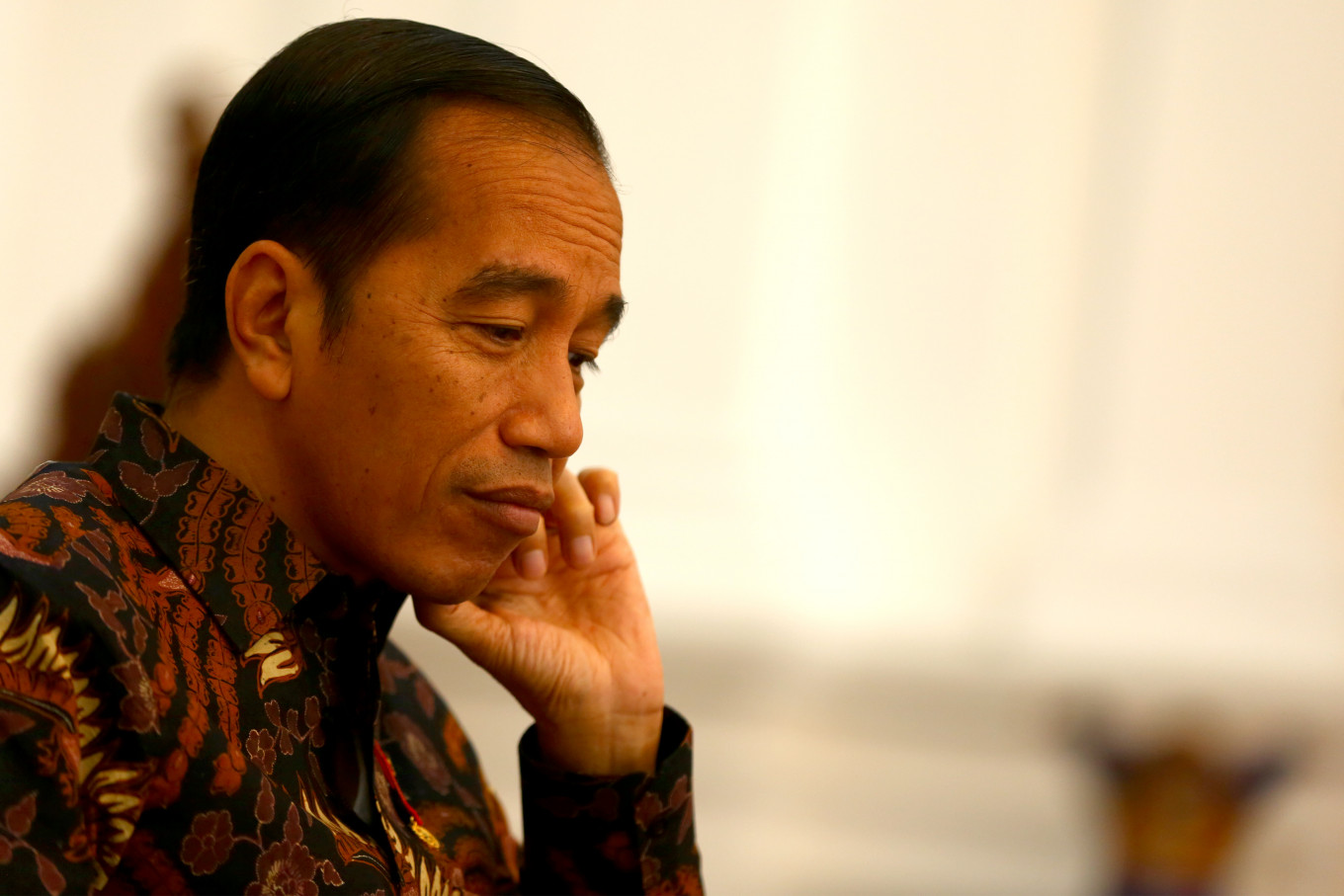Popular Reads
Top Results
Can't find what you're looking for?
View all search resultsPopular Reads
Top Results
Can't find what you're looking for?
View all search resultsJokowi wants more microcredit disbursements to productive sectors
The government has raised the value ceiling of microcredit to be disbursed in 2020 to Rp 190 trillion (US$13.55 billion).
Change text size
Gift Premium Articles
to Anyone
P
resident Joko “Jokowi” Widodo has said that he wants the government’s microcredit program (KUR) to be channeled to more productive sectors so that the loans would have more impact on the economy.
Speaking during a Cabinet meeting about KUR, Jokowi said he had received reports that more KUR loans were disbursed to the trading sector instead of to the productive sectors.
“This is what we need: to shift [the disbursement] into more productive sectors, particularly micro businesses in the agriculture sector,” said Jokowi at the Presidential Office on Monday.
The government has raised the value ceiling of total KUR loans to be disbursed in 2020 to Rp 190 trillion (US$13.55 billion) and has committed to a gradual increase of the ceiling to Rp 325 trillion by 2024. The microcredit interest rate was also brought down to 6 percent next year from the current 7 percent.
Jokowi said he received reports that banks appointed to disburse KUR loans to the small and medium enterprises (SMEs) still asked for collateral to avoid taking on non-performing loans (NPL), adding that such practices should be avoided going forward.
Read also: Government to reduce KUR annual interest rate to 6 percent in 2020
“These kinds of practices cannot happen, so that KUR loans are truly channeled to the productive sectors and can upgrade our SMEs,” said Jokowi.
He proposed several ideas to change the KUR disbursement mechanism, such as by offering specialized schemes according to the needs of certain industries, including adjusting a loan’s grace period to an SME's production cycle. Another way proposed was that the government could lengthen maturity periods for “investment KUR” so that SMEs could have more time to expand their businesses.
Between January and September this year, as much as Rp 115.9 trillion in KUR loans were disbursed to 4.1 million of borrowers, according the Office of the Coordinating Economic Minister. The figure represented 82.7 percent of the Rp 140 trillion KUR ceiling set for 2019.
About 50.4 percent of the KUR loans in the first nine months of this year were disbursed to the productive sector, below the government’s target of 60 percent.










